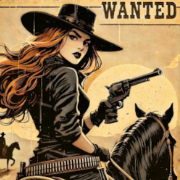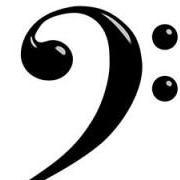Leaderboard
Popular Content
Showing content with the highest reputation on 07/13/2021 in all areas
-
As usual, not that I try to but it usually just shakes out this way, I'm gonna have the opinion that induces the most rage. So before we begin Okay let's do this. Firstly, I'm not actually certain that what you describe — composers and musicians not showing up to concerts — really matters. Actually, I would say it's often better if they don't. I, for one, don't actually make music for musicians to listen to; I just want normal people to like it and listen to it. But I find getting musicians to listen to new music is no problem. On these forums or whatever, I can usually expect to get a few dozen plays or something. On YouTube, some of my tracks wound up getting into the recommended feeds of normies and skyrocketed to tens of thousands of plays and hundreds of likes. I am always glad when musicians, especially ones much better than I am support what I do and like it, but it means a lot more to me when the average person, who just got off their boring, soul-crushing 9-5, stumbled upon my music, thought it was freaking awesome, and shared it with their friends because it brightened their day that much. Maybe, it even inspired them to get into composing themselves and that's even better. Then, a beginner reaches out to me via forums, email, IRL, whatever and is asking me for advice on their own stuff and how to do something. That's also humbling and good and it's actually gotten to be a bit too much this past year (which is why I'm making some online courses and prob gonna offer some skype lessons soon) too keep up with. All of that, in my opinion, is far better than musicians showing up. I played in rock bands and let me tell you something: The brutal reality of 99% of live music today falls under two categories • It totally sucks. Standards are very low. I can't tell you how many years it took before I could get to jam with a band that could actually play IN TIME with each other and would show up. I played alongside a lot of bands that just friggin' sucked, dude. They played way too loudly, too much distortion, singer couldn't sing, out of time, etc. Then, after the show they'd come up to us and be like "Hey, you guys were awesome, man!" and we'd say "Thank you" and then were always like waiting for us to say they were great too and looked disappointed when it didn't happen. It's like, well bro...I'm not gonna lie to your face and say you were amazing when you clearly bungled the song, don't know how to write a coherent piece, and couldn't even play in time with each other. If someone came up to us and said "Hey, you guys kinda sucked tonight", we were willing to be like "Yeah, it wasn't as good as it should have been". Most musicians don't have that kind of self-reflection, so what happened at virtually all of these shows, is that the "audience" was 100% "musicians". Just guys in bands that suck as bad as 9/10 of the other bands. It's a total echo chamber and "trophy-for-everyone" fest. People don't come because the bands aren't worth seeing. • Like with art galleries, there are many talented people out there. They don't get promoted though. If you have some sort of social justice message to sell, you can just literally tape a banana to a wall and they'll promote the crap out of it for purely political reasons. The guy who can actually sculpt, compose, paint, etc? Nope. Not interested. The industry is full of gatekeepers/politicians. This then harms the actually-good composers when they do get promoted, because most people just assume it's more modern-art garbage. Now I will say, I'm not entirely sure what it's like in local orchestral or chamber music "scenes" as per point 1, but I know it's true for point 2. The local orchestras near me almost never play anything by new composers and the few times they seemingly have, it was pretty much not even advertised so I never would've known about it anyway. Last point • You have a niche category of music Most people today, including musicians, outside of a film/game context, do not have any interest in orchestral music. Even I can honestly say I don't feel compelled to go watch a string quartet + winds duo. People want to have fun at concerts as much as they do hear the music. People want to dance, they want lights, they stage antics and performance, they want the social aspects of it as well as the music. Sitting silently in a cathedral or hall to listen to a cellist saw away might sound nice and have a nice atmosphere to it, but it's just not something most people are going to make an afternoon/evening out of, or certainly pay for, when there are (at least pre-2020) so many other more-fun things they can be doing. Historically, the orchestra was generally the music of rich people and to a lesser extent, churches. For the peasants, the unwashed masses, the normal people — the fiddler on the street or at your spring festival and drums is what they know as music and they'd have much rather been doing that than going to sit quietly in church and listen to a choir sing ANY piece old or new. In other words? Musicians aren't showing up to local concerts? Good. &*#@ 'em. If it's mostly musicians showing up, it means that the music is pretty bad. If you have like 40 normal people who just want to listen to music showing up to an orchestral/chamber music concert in 2021? You're doing very well, I'd say.2 points
-
Good evening everyone, I had the good fortune of having my piano tuned for the first time in well over a year a couple of days ago. I'd almost forgotten how nice it could sound and feel! Anyways, given the wild hot/cold weather we've been having here it'll probably only last a week before keys start sticking and the action starts creaking again, so I thought I'd better take advantage of this little window of piano bliss. Here's a link to a collection of five piano character pieces. Written in late 2019, it's my most recent work, and actually the only thing I've written in the past four years or so. As one would expect from the title, these are melody-oriented and not formally complex. Hope you enjoy!1 point
-
Some very insightful thoughts have been shared here already. For the vast majority, music is not engaging out of context. It has to be connected to a cause, a social experience, a good memory, an enjoyable event, or something else directly relatable and meaningful to the person. People without musical background will routinely describe music and identify with it by those terms - "that would be great for meditating in yoga class," "I could really see that being used at the start of a church service as the procession is coming in," or maybe "oh, that would be great in a horror film when the axe murderer's about to jump out from behind the curtain like in that one movie I saw with my friends and we all, like, got freaked out and it was so fun lolololol!" It is for this reason that most people don't want to attend classical music events but will line up for days beforehand or pay scalper prices to attend popular music events. It isn't because the music itself is better or more entertaining per se - it's because of all the other things connected to the show that make it desirable to be in attendance. It's the same with sporting events. If there was no alcohol and you had to sit quietly and just watch, do you really think that people would show up by the thousands for every game? If there was no intense visual stimulation, would popular music and sporting events be as popular as they are? I'm reminded of this Simpsons scene (around the 30 second mark). The simple answer is no. We often expect that professional musicians are going to be somehow different from the general population, but we are driven by the same impulses. The only real difference is that we can generally find meaning just in listening to the music provided it aligns with our musical preferences. Thus, we don't always need an external context to provide meaning (something which I didn't realize is so rare when I was younger). The sound itself is enough. But if the music doesn't align with our personal tastes, the ability to find that meaning or enjoyment is lost, and listening to it becomes just as tedious as it would be to someone in the general public. Be honest with yourself: if you can determine (as most of us can) within the first 30 seconds that a piece posted here doesn't align with your musical preferences and it's longer than 5 minutes, have you ever listened all the way through? More than once? Do you really care how well-written or artistically valuable it may be? Do you feel compelled to praise it with something more than a back-handed compliment? Would you choose to play it yourself or pay money to go to an event in which that piece was featured? Would you even go if it were offered for free? Nothing is really free. Even if you aren't paying to attend a concert, you're spending your time, and if you get nothing out of the experience, why would choose to do that if there isn't an extra-musical factor driving the decision? I have a little anecdote to share regarding my 2018 recital, the first I'd done which was entirely comprised of my own works. After it ended, some people came up to talk to me, and one conversation in particular stands out. A lady with a musical background approached, and after the obligatory "thank you for sharing your pieces" comment in regards to my piano preludes, she asked me who had written "that stunning trio in the second half." There was no printed program, and evidently she hadn't realized that I was the only composer in the program. When I told her it was me it was perfectly clear through her reaction that she thought I was joking. She asked again - and I confirmed again that I had written it. The shock was obvious. Clearly this educated, musical person - sadly like so many educated, musical people nowadays - did not believe that a genuinely moving work could have been written by a living art music composer. It got me thinking - why is this so difficult to believe? (This is where I'm sure I'm going to start ruffling some feathers here.) The reason it's hard to believe is that for the better part of a century now, art music composers have been writing music which, frankly, fails to entertain or provide any sense of meaning to the vast majority of the population, including even people with significant musical backgrounds. It's almost like a cult - those who take their art to the university level have it drilled into them for years that they must promote new music and include it in their programs. They're told that new music must be "fresh" and "break new grounds." Consequently an awful lot of professional musicians perform or compose this music solely out of a sense of obligation or duty. They pay lip service to the importance of this type of music, but secretly, most of them don't actually like it - something that is easy to recognize when you notice that most of them are regularly in attendance for performances of works of the past but rarely show up for contemporary-only events. Like Quinn, I'm a bit surprised that this topic even came up. If you genuinely like contemporary art music and would choose to listen to it or even pay to do so, certainly you must understand that you are part of a very tiny minority. If you like and promote older styles of art music, you are part of a slightly larger but still tiny minority. But does it really matter? Personally, I'd rather have ten people come to my recital because they genuinely want to hear my music than 10 000 who are mainly coming for the intoxicants, socializing, and light show. If you're interested in commercial success, you need to adjust what you offer to what people want to hear. That's never going to be contemporary art music.1 point
-
I don't have anything to contribute to the technical aspects of the composition, although, I marvel at your approach to composing. The music is quite intriguing and I enjoyed this "musical journey" very much.1 point
-
Thanks for answering :3. I decided to use a double bass intead of cello just because I like double bass more, I love it's deep and powerfull sound. Also I have a Double bassist friend and I wanted to include his intrument in one of my pieces.1 point
-
Nice job! I really like the character of this dance which you emulate very well in this piece! It is instantly recognizable by it's rhythm, instrumentation and characteristics. I guess you chose to employ a double bass instead of a cello because of it's jazz associations? It's pretty cool all around and I love the melody - it is quite catchy and I'm singing it to myself after the piece has already finished. So good job there - you didn't just copy the style - you made it your own and in a unique way. Thanks for sharing!1 point
-
It's hard to speak to this without having been on the scene to see how things were marketed, but I work in the art world as well as the music world, and starting anything is always a real struggle. You have to expect it to take 3, 5, 10 years for an annual event to really take off. You have to plan to spend money on advertising and venue, and paying staff to organize everything and not let your heart break when the first few years are really sparsely attended. I just sold work at my town's brand new summer arts festival last weekend. They made a huge effort to make it worth my while to be there, because it was the first year they've tried to do this, and they knew that attendance wouldn't be great, so they provided tents and chairs to save all the artists having to set up their own, and there was free parking for artists and attendees all day, and volunteers to help you set up and pack up and to watch your work while you ran to the bathroom... and instead of charging artists a booth fee for the privilege of selling our work, the city actually paid a stipend to thank us for taking a gamble on a brand new event when we could have been somewhere else at an established event making money. So you may not have actually had a "musicians don't support new music" problem. You may have had a "this is a new event" problem. The fact that three clarinetists came from the school where someone just did a masterclass is typical. You need to find ways to create interpersonal connections like that to get butts in seats for any event, but particularly for a brand new event. Give each participating musician a fistful of free tickets to give away. Ask them what else is on their schedule for the weeks and months before the event and YOU go to THEIR events, (and deputize your planning committee members to do the same) just so you can stand up in the back of the room when the presenter asks if there are any questions and say that you just love clarinetist x, and wanted to be sure that everyone knows they will be performing again at New Music Fest next month and you'll be in the lobby with tickets later. Talk to the music departments at the surrounding universities and ask if they would like to assign extra credit points to any student who attends your event. Offer to set up a car-pool to and from the event. And remember that working musicians have lots of events to go to, because they are participating in events. I don't go to a lot of concerts because I'm busy being in the concert. I don't go to a lot of art shows because I'm busy being in the art shows. My weekends and evenings are booked between events I'm participating in and rehearsals. I have... no... time. Don't expect musicians to be the bulk of your ticket sales. You need to market your event to the general public. Pop music constantly churns out new songs and people are very excited about it. Pop music also has a massive well-tested marketing engine behind it. It's all marketing.1 point
-
I think this is more the fault of a change in venue than in contemporary composers not being interested in their fellow composers work. With readily available and decently high quality renditions being produced by many composers, the need for concertizing has fallen to record lows. The only reason to get something performed live is to record it and preserve that performance for posterity. People don't see as much need to go out and listen to new compositions for these reasons. Plus they have much more of a choice over what they want to hear - the whole internet is at our fingertips and includes the very new music you're claiming is only available through new music concerts.1 point
-
You have a really good ear ... I went back to the Finale file ... and yes it is a B flat and yes Finale did not put in the cautionary accidental # for the D! I really appreciate the feedback and I am glad you found the work enjoyable. I'll post a new PDF.1 point
-
I really liked this! Your harmonies are very beautiful, and I like the melodic consistency. The orchestration is very mysterious and colorful, the harp passages are very evocative. This reminds me of some late romantic American orchestral music, in the vein of Dvorak's Largo from the New World Symphony. I really enjoyed this!1 point
-
For only having been composing for 6 months, your grasp of the Baroque style and sense of counterpoint are excellent! My main question is: why did you write this for voices and not instruments? Since there are no words, and this would be extremely difficult to sing,* why not just use a string quintet instead? Or even woodwinds, who could play these lines pretty easily. *The fast, wide leaps (e.g. soprano, 2nd line) as well as the fast notes at the extremes of their ranges (soprano m. 12; baritone, m. 17) are almost impossible vocally... and even without them, the harmonic and rhythmic independence of the parts would make this a huge challenge to put together a cappella.1 point
-
1 point

.thumb.png.8b5b433a341551e913a34392660bc95b.png)




